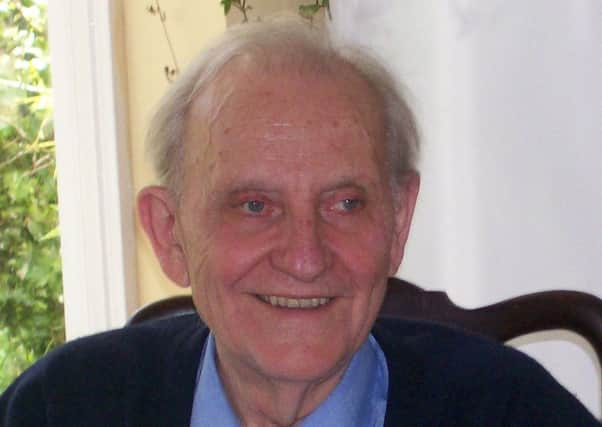Obituary: István Mészáros, hungarian Marxist political philosopher who taught at St Andrews


Following the Soviet army’s brutal suppression of the Hungarian Revolution in 1956, István Mészáros – the internationally respected political philosopher, who has died aged 86 – accepted the advice of his senior colleague, the renowned cultural critic György Lukács, to escape from his home city of Budapest. His path to a life in the West took him via Turin and London to a lectureship at St Andrews University. What his colleagues there first wanted to know was not about his political experiences or relationship with Lukács but: ‘What’s your handicap?’ Realising they were not referring to physical disability, he gathered he would be required to play golf as well as teach Hegel. He picked the game up quickly and, before leaving for the new University of Sussex five years later, could defeat most of his fellow academics on Scotland’s famous links.
Mészáros was a controversial theorist who latterly eschewed personal involvement in controversy, although – in the light of his homeland’s fate in the Stalinist years, and his experience of Scotland – he was more than ready, when Scottish independence came on to the agenda, to argue strongly for the right of small nations to self-determination.
Advertisement
Hide AdAdvertisement
Hide AdHis major intellectual achievement – of which the foundation stone is Beyond Capital: Towards a Theory of Transition (1995) – consisted of taking the fundamentals of Marx’s ideas and method beyond their 19th-century determinations to show that the social dominance of capital is itself historically specific and temporally limited. The crises beginning in the latter decades of the 20th century should be understood as manifestations of capital’s systemic “structural crisis”, demonstrating the necessity and – however concealed – practicality, of transition “beyond capital” to a “social metabolism” of real, unalienated, human relations.
The argument evolves over several lengthy volumes, and was to have culminated in a three-volume analysis of the state, Beyond Leviathan – incomplete at his death but soon to be published in part. Key elements of Mészáros’s thinking appear more succinctly in books such as Socialism or Barbarism (2001); The Structural Crisis of Capital (2010) and The Necessity of Social Control (2015).
He was born in 1930 in the Hungary of the Horthy dictatorship. His mother, who raised him alone, worked in an aircraft-engine factory, where he joined her aged only 12. When, in lieu of a wage, he was paid with brawn (jellied pig’s-head) that was full of hair, he vomited it out in the snow and decided his life should be devoted to fighting inequality and injustice. Other anecdotes about his youth – told with the warmth of his welcoming personality – included an audition with Hungarian National Opera, when Otto Klemperer advised him to persist as a singer, and playing football with the legendary Ferenc Puskács.
In 1949 a scholarship took him to Budapest’s Eötvös University where he took risks in defending Lukács against the “Communist” authorities and writing a critique of the banning of the production by the National Theatre of a classic poem, Csongor and Tünde, which was deemed too pessimistic. The play was reinstated and Lukács appointed Mészáros as his assistant in the university’s Institute of Aesthetics. He went on to be a significant figure in the Petöfi Circle of intellectuals, including the composer Zoltán Kodály and Lukács, which contributed to the workers’ uprising in October-November 1956.
Earlier that year, he was designated Lukács’ successor as professor of aesthetics and married an Italian, Donatella Morisi. But the defeat of the revolution meant the couple leaving hastily with few belongings including only two books, Mészáros’s own volume on aesthetics and Goethe’s Faust.
After St Andrews, he taught at Sussex until he retired as professor emeritus in 1991, with the exception of three years when he held a chair at York University, Toronto. The Canadian interlude created a cause célèbre when, accused of being a security risk, he was refused a visa. When protests forced the reversal of the decision, the Canadian foreign minister resigned.
In 1971, Mészáros’s Marx’s Theory of Alienation won the Isaac Deutscher Memorial Prize and he went on to publish regularly, notably on Jean-Paul Sartre, before embarking on his last major project. After the collapse of the Stalinist order, he was elected, in 1995, to the Hungarian Academy of Sciences.
Mészáros’s original and radical rethinking of Marxism has found an enthusiastic audience in Latin America, where it has been embraced in universities and on the anti-imperialist left. In 2008 he was awarded Venezuela’s Libertador Prize for Critical Thinking, and Hugo Chavez, whose economic advisers drew on his work, declared that it, “illuminates the path ahead… toward socialism”. His critical support for Chavez – whose determined resistance to imperialism he admired – was criticised by some on the European left, but he was unapologetic.
Advertisement
Hide AdAdvertisement
Hide AdDonatella died in 2007, leaving him bereft, but – dedicating it to her – he continued his work till the end. His children, Laura, Susie and George, and three grandchildren survive him.
Terry Brotherstone